Fighting Back Against SAD with Penguins and Holiday Scenes, A Poet Interview with Wombwell Rainbow, and More Cancer Tests and Poetry Lessons from Plath
- At November 14, 2018
- By Jeannine Gailey
- In Blog
 1
1
How to Fight the SAD with Holiday Scenes and Zoos
The days are so short now it is so dark after 4 PM that I can’t see my way to the car. That’s on top of the rain, the bad news that trickles in. I have a LOT of medical stuff to get through by the end of the year (including another cancer check this Friday), I’ve been sick with the sinus/respiratory sort of bug seemingly forever, I sprained an ankle a couple of days ago. Watching the horrible fires in California has been heart-wrenching, the smoke has finally arrived up here to cloud the air (and Facebook reminded me it’s been seven years since I moved back here from California – we only lived there for two years, and both places we lived succumbed to fire – and one to fire AND earthquake. Love to all my California people.) So this is the time of year that you just settle in under a blanket to read your new Murakami and your new volume of Plath letters, and just, well, maybe I could use a little break from that to cheer up.
So, whenever we had a little promise of sun, or I got so stir-crazy I couldn’t stand it, Glenn would whisk me up – cane, extra layers, a travel mug of hot tea – and go do something to cheer me up. One day it was the zoo – I had to use my wheelchair – we were hoping to get a glimpse of the new red panda cubs but apparently missed it by a week – but on our brief (less than one hour to see the whole zoo) whirlwind tour, the sun was shining, the penguins and flamingos and wolves were beautiful (and a local bird showed up for a photobomb.) I love animals – did I mention I took a class at the Cincinnati Zoo as an undergrad biology major and almost became a zoo worker? By the way, a beginning zoo worker at the time with a degree in zoology made about $26,000 a year. The jaguar and tiger were both out and the snow leopards – a mother and yearling – were very active. The gray wolves – which look like white ghosts in the woods – were so beautiful. And the flowers were blooming, as if by magic – pink camellia, roses, and a few others I couldn’t name.
- Otter face
- Ghost gray wolf
- Roses and rose hips
- A grumpy heron waits for fish
- Flamingo Flapping
- Snow Leopard
- Humbolt Penguin
- The zoo’s antique carousel
The other day, it was pouring rain, so he took me to our local gardening center, Molbak’s, which is this crazy Woodinville store with a coffee shop and a thousand kinds of plants and trees and flowers and, at holiday time, about a hundred holiday scenes to goof around and pose in. I also, I am sad to say, came home with several more things than I needed (curse you, holiday ornaments that look like owls or arctic foxes!)
- Under a full moon with snowy owl
- Golden woodland holiday
- Poinsettia tree at Molbaks
- Poinsettia Kiss at Molbaks
An Interview with Me!
Thanks to Paul Brookes, there is a new interview with me up at Wombwell Rainbow today!
Cancer Tests and Lessons from Plath
Yes, it’s been nearly two years since they discovered that my liver had a bunch of tumors in it, which look like cancer, but may or may not be cancer, so I have to keep having tumor marker tests and getting MRIs to make sure they haven’t spread or grown. I don’t like having MRIs, and I don’t like being reminded of the many many thing that are wrong with me, so these tests always put me in a bit one edge. I’m also claustrophobic and I lost my liver cancer specialist when he took a new job on the East coast, so I’m meeting with a new guy at the end of the month. My MS new drug stuff has been put on hold briefly because the MS drug can be dangerous for livers, so I’ve got to go complete a whole new batch of blood work. Fun stuff, right? You can see why I’ve been needing the cheer factor.
But I’m trying to glean some lessons on surviving the tough rigors of the life of a poet from Sylvia Plath – The Letters of Sylvia Plath, Volume 2, which just came out. You know, we assume that Plath had little or no success while she was alive, but W.S. Merwin and T.S. Eliot tried to help her out, she had her first poetry book, The Colossus, in the US published by Knopf (not too shabby, even though she was discouraged that Marianne Moore gave it a bad review and she had been aiming for the Yale Younger Prize.) Even with Merwin’s good word at the New Yorker, it took her ten years to get her first poem published there, and that was after a year’s worth of back-and-forth edits on her poem. She had written and published The Bell Jar, been anthologized in several big time anthologies of American and English poetry, and been paid to read her poems on the radio. She talked of needing “a little of our callousness and brazenness to be a proper sender-out of MSS” – I definitely need that as I’m sending out my sixth book manuscript to publishers. All this is to say that she worked at poetry like a “real job,” besides being a typist, teaching, researching, and other side gigs, on top of having two babies and a pretty solidly terrible husband who messed around on her and didn’t do much cleaning up, cooking, or childcare. I think a little more money would have helped her too – she had to side hustle pretty much all the time to make ends meet. All in all a kind of cautionary tale – she had a lot of ingredients for success, and sometimes I think, if she’d waited a few years, if the medications of the time (right before the birth control pill and a bunch of mental health breakthrough drugs) had been better, if she’d cultivated friendships with women poets instead of getting so wrapped up in her toxic husband, if the literary world hadn’t been so solidly misogynist during her time – I mean, sometimes I think, if I could only tell her how successful she’ll be. She’d be around 85 now. Anyway, in no way was she a perfect person – she had a mean streak which probably lessened her social support circle and was deeply flawed as well as talented – but I do think that anyone who thought she was weak or didn’t work hard for her success should read these letters. It’s a wonderful (and terrifying) portrait of the woman writer’s life in the late fifties and early sixties. I’ve been working my way through the letters of women with different illnesses – Flannery O’Connor’s life as a writer with her lupus, Elizabeth Bishop and her depression and alcoholism, Sylvia Plath – in order to glean something – strength? Advice? Lessons in what to do and not do? All of these women were very prodigious letter writers, too – in turns, funny, warm, bitter, and a lot about money stress and success (or the lack of it.) And women writers still get ignored, underpaid, under-reviewed, published less often by the big names. That hasn’t really gone away. I think I’m looking for a path that may not exist yet.






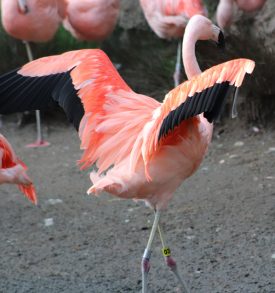




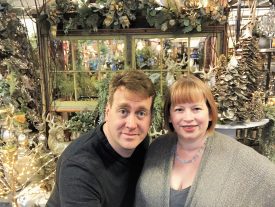


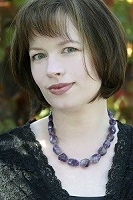
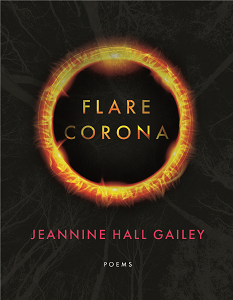
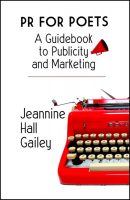
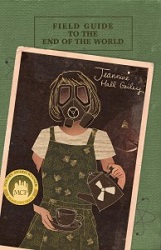




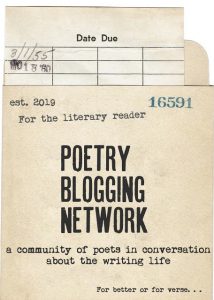
Poet Bloggers Revival Digest: Week 45 – Via Negativa
[…] But I’m trying to glean some lessons on surviving the tough rigors of the life of a poet from Sylvia Plath – The Letters of Sylvia Plath, Volume 2, which just came out. You know, we assume that Plath had little or no success while she was alive, but W.S. Merwin and T.S. Eliot tried to help her out, she had her first poetry book, The Colossus, in the US published by Knopf (not too shabby, even though she was discouraged that Marianne Moore gave it a bad review and she had been aiming for the Yale Younger Prize.) Even with Merwin’s good word at the New Yorker, it took her ten years to get her first poem published there, and that was after a year’s worth of back-and-forth edits on her poem. She had written and published The Bell Jar, been anthologized in several big time anthologies of American and English poetry, and been paid to read her poems on the radio. She talked of needing “a little of our callousness and brazenness to be a proper sender-out of MSS” – I definitely need that as I’m sending out my sixth book manuscript to publishers. All this is to say that she worked at poetry like a “real job,” besides being a typist, teaching, researching, and other side gigs, on top of having two babies and a pretty solidly terrible husband who messed around on her and didn’t do much cleaning up, cooking, or childcare. I think a little more money would have helped her too – she had to side hustle pretty much all the time to make ends meet. All in all a kind of cautionary tale – she had a lot of ingredients for success, and sometimes I think, if she’d waited a few years, if the medications of the time (right before the birth control pill and a bunch of mental health breakthrough drugs) had been better, if she’d cultivated friendships with women poets instead of getting so wrapped up in her toxic husband, if the literary world hadn’t been so solidly misogynist during her time – I mean, sometimes I think, if I could only tell her how successful she’ll be. She’d be around 85 now. Anyway, in no way was she a perfect person – she had a mean streak which probably lessened her social support circle and was deeply flawed as well as talented – but I do think that anyone who thought she was weak or didn’t work hard for her success should read these letters. It’s a wonderful (and terrifying) portrait of the woman writer’s life in the late fifties and early sixties. I’ve been working my way through the letters of women with different illnesses – Flannery O’Connor’s life as a writer with her lupus, Elizabeth Bishop and her depression and alcoholism, Sylvia Plath – in order to glean something – strength? Advice? Lessons in what to do and not do? All of these women were very prodigious letter writers, too – in turns, funny, warm, bitter, and a lot about money stress and success (or the lack of it.) I think I’m looking for a path that may not exist yet. Jeannine Hall Gailey, Fighting Back Against Sad with Penguins and Holiday Scenes, More Cancer Tests and Poetry Lessons fro… […]